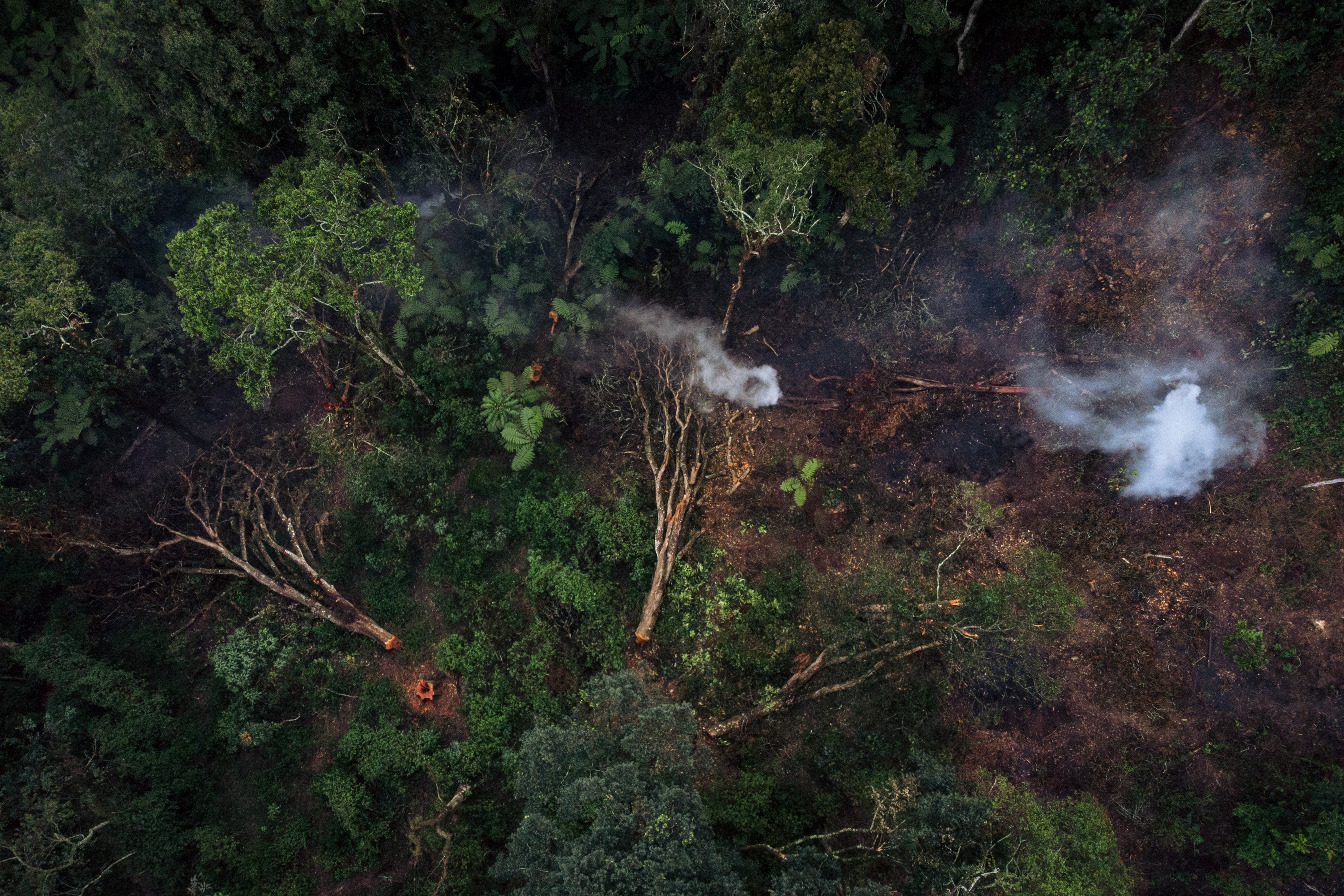This Pandemic Is A Sign That Humanity's Overexploitation Of Nature Affects The Environment
A recent report by WWF illustrates the link between humanity's impacts on ecosystems and biodiversity and the rise of certain diseases.
The world has come to a grinding halt, thanks to the coronavirus
The novel coronavirus disease 2019 (COVID-19), caused by a virus named SARS-CoV-2, has forced the world to a grinding halt. What first started in Wuhan, the capital of China's Hubei province, has since rapidly spread and caused a global pandemic, forcing major cities and countries to close their borders, shut down their economies, and ask their citizens to isolate themselves.
In a time of global connectivity, we are now disconnected
Video calls in lieu of face-to-face meetings, working from home, and homeschooling have become the "new norm" of daily routines. As the COVID-19 virus is mainly spread between people during close contact, wearing face masks, maintaining physical distance, and hand washing or sanitising have become the rituals we adhere to when we leave the comfort of our homes.
The COVID-19 pandemic has caused more than five million confirmed cases to date.
It has swept through countries and continents and caused massive human suffering, shaken financial markets, and upended societies. We feel for the ones who have had to battle the virus, for those who have lost the people they know and care to the virus, and we fear for ourselves and our loved ones.
COVID-19 and the environment
However, while the spread of the current crisis is unprecedented, COVID-19 follows a number of diseases that have emerged in recent decades, such as Ebola, AIDS, SARS, avian influenza, and swine flu.
All originating from animals, there is increasing evidence that humanity's overexploitation of nature is one of the factors behind the spread of new diseases.
A recent report by WWF, "The Loss of Nature and the Rise of Pandemics: Protecting Human and Planetary Health", illustrates the link between humanity's impacts on ecosystems and biodiversity and the rise of certain diseases.
While many of the links are not yet fully understood, it is clear that our health and the planet's health is interconnected
Human activities have significantly altered three-quarters of the land and two-thirds of the ocean, extensively changing the planet. Illegal and uncontrolled trade of live wild animals creates dangerous opportunities for contact between humans and the diseases these creatures carry.
Destruction of wildlife habitats should be taken into account, as it can contribute to the increasing likelihood of the rise and spread of new diseases.
If there is anything that we should and can take away from this pandemic, it is this — healthy natural ecosystems are essential to human health.
While it is crucial that we work to protect human lives and well-being in response to COVID-19; the current situation underlines the need for urgent action to rebalance our relationship with nature.
Some of the most important actions we can take to reduce the risk of future pandemics are to crack down on illegal wildlife trade and close unregulated wildlife markets. Unsustainable wildlife trade is the second-largest direct threat to biodiversity globally, after habitat destruction.
Cracking down on the illegal wildlife trade doesn't just protect species, it helps safeguard people's well-being and lives.
Ensuring the protection of environmentally sensitive areas
Given the close link between the environment and human health, livelihoods, water and food security, it has never been more urgent that environmental protection, conservation, and sustainable management is mainstreamed at all levels of the government and across agencies, and this includes ensuring Environmentally Sensitive Areas are protected and managed sustainably.
There is a need for enhanced inter-ministerial and agency collaboration, to ensure that action plans which are environmentally-inclusive are endorsed and approved. Economic recovery and sustainable development do not have to be mutually exclusive. Green growth must be part of the new norm.
A new deal for nature and people is needed to reverse the loss of nature as well as protect and restore nature by 2030 for the benefit of people and the planet. One of the key elements of this is that governments – ranging from heads of state to ministers – as well as businesses, civil societies, and the public need to pool their resources to strengthen the multilateral treaties such as the Paris Agreement on Climate Change, as well as a new framework for the Convention on Biological Diversity (CBD).
These conventions, together with measures to implement the Sustainable Development Goals, will lead to better national strategies for sustainable development.
Through a range of conservation programmes, WWF-Malaysia has been working with various agencies, institutions, and corporates to ensure that our natural resources are produced and used sustainably and responsibly.
To that end, we engage with stakeholders along the entire supply chain to be environmentally-sensitive, adopt production, and consumption of certified products, as well as enhancing the awareness and knowledge of consumers on the importance of protecting the environment.
The coronavirus has put most countries into shutdown and things probably aren't gonna go back to "fully normal" for a long time:
Meanwhile, Amnesty International explains why Rohingya are still risking everything to flee crowded refugee camps in Bangladesh:
Editor's Note: This story is the personal opinion of the writer. You too can submit a story as a SAYS reader by emailing us at [email protected].

